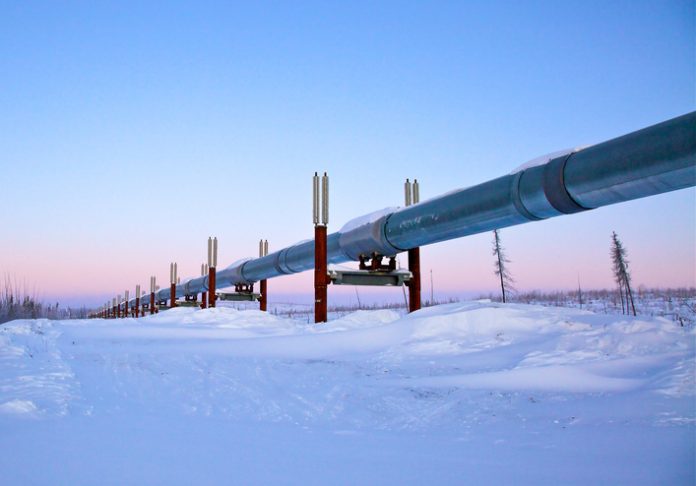Slamming the door on an effort to implement climate policy through judicial means, the Alaska Supreme Court dismissed a lawsuit claiming the state’s young residents had a state constitutional right to be protected from global warming caused by the development of oil and natural gas.
In its January 29 ruling, a majority of the Alaska Supreme Court found that the elected branches of government, not the courts, were the place to decide the state’s energy policy.
The majority’s opinion affirmed a lower court’s ruling issued in 2018.
‘Our Children’s Trust’
The lawsuit was filed by Our Children’s Trust, an Oregon nonprofit that was behind Juliana v. U.S., a separate lawsuit claiming children were being harmed by human-induced climate change.
That suit was rejected by the federal Ninth Circuit Court of Appeals in 2020.
In the Alaska case, lawyers for Our Children’s Trust recruited 16 youths, including some from indigenous communities, as plaintiffs. Our Children’s Trust argued on behalf of the youths that because Alaska’s Constitution requires the state to develop its natural resources “in the public interest” and “for the maximum benefit of its people,” and oil and gas production was causing dangerous climate change, allowing it violates the state’s Constitution.
The defendants in the lawsuit were State of Alaska, Gov. Mike Dunleavy, and several state agencies.
‘Ad Hoc Natural Resource Management’
In rejecting the call for an injunction on oil and gas production, the court pointed out that the Alaska Constitution also instructs legislators to “provide for the utilization, development, and conservation of all natural resources belonging to the state.”
The court indicated that although it shared to some degree the plaintiffs’ concerns about rising sea levels and damage to permafrost, it had neither the expertise nor the authority to rule on the matter.
“The Alaska Constitution and relevant statutes do not leave plaintiffs without recourse,” said the state Supreme Court’s majority. “They may challenge discrete actions implementing state natural development and environmental policies.
“They may attempt to legislate by initiative … but having a majority of the elected legislators disagree with or lack the political will to enact or implement plaintiffs’ preferred policies does not justify an unconstitutional remedy,” the court ruled. “Plaintiffs essentially seek to impose ad hoc judicial natural resources management based on case-by-case adjudications of individual rights.”
The judges added that it would be more prudent for lawsuits related to climate change to be filed only in “actual controversies arising from specific actions by Alaska’s legislative and executive branches.”
A similar case, Kanuk v. State, was brought by six children in Alaska in 2011 in which the plaintiff’s alleged fossil-fuel development in Alaska was causing dangerous climate change. The Alaska Supreme Court dismissed that case in 2014.
‘Distort Science in the Courtroom’
This lawsuit lacks scientific merit and was based solely on the attorneys’ political goals, says Jay Lehr, Ph.D., a senior fellow with the International Climate Science Coalition.
“I hope this ruling marks a sea-change in climate-related litigation and helps put an end to the decades-long effort to distort science in the courtroom to forward a political agenda,” said Lehr. “The Alaska Supreme Court made the right decision and thwarted this transparent ploy to circumvent the state legislature in setting the state’s energy policies.”
‘Using Children as Props’
Adults should be ashamed of themselves for stoking fear of a climate apocalypse among youths in order to use to gain political control over the economy, says Craig Rucker, president of the Committee for a Constructive Tomorrow (CFACT), which co-publishes Environment & Climate News.
“There is nothing new in using children as props in the political arena; it’s cynical, but that’s not to say it can’t be effective,” said Rucker. “Fortunately, in the Alaska case, the judges weren’t moved and stuck to the law.
“This is a victory for honesty and the Alaskan economy, which is highly dependent on the state’s abundant natural resources,” said Rucker.
Bonner R. Cohen, Ph.D., (bcohen@nationalcenter.org) is a senior fellow at the National Center for Public Policy Research and a senior policy analyst with the CFACT.



























[…] post Alaska Supreme Court Rejects Youth Lawsuit Challenging the State’s Energy Policies appeared first on Heartland Daily […]